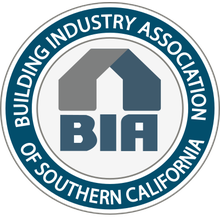Under California law, employers can only allow operators with a valid certificate of competency to operate a crane with a load capacity of 15,000 pounds or more with a boom length of 25 feet or more.
If your crane fits this description of the regulation, your crane operators must be certified and you as their employer must make sure they're certified.
To be certified, an operator must pass:
- A physical examination conducted by a physician;
- A substance abuse test;
- A written examination developed, validated, and administered in accordance with the Standards for Educational and Psychological Testing. The test covers the operational characteristics and controls on the type of crane to be used; emergency control skills; basic arithmetic skills necessary for crane operation and ability to read and comprehend the crane manufacturer's operation and maintenance instruction materials, including load capacity information (load charts); and knowledge of applicable portions of the national consensus standard.
- A "hands-on" examination to demonstrate proficiency in operating the specific type of crane, including pre- and post-start inspections, maneuvering skills, shutdown, and securing procedures.
Certifications may only be issued by a "certifying entity" whose certification program has been accredited by the National Commission for Certifying Agencies (NCCA) and will be valid for a maximum of five years. Operators must re-certify every five years by meeting the requirements of the initial certification. Operators with at least one thousand hours of documented experience operating the specific type of crane for which re-certification is intended, do not need to take the "hands-on" portion again.
Training, even for experienced crane operators is important. The amount of training necessary will vary depending on the operator's current knowledge and skill. But employers should schedule time to train and time to take the test. Trainees may operate mobile or tower cranes, if they are under the direct supervision of an operator with a valid certificate of competency for the type of crane operated by the trainee.
Mobile cranes with boom lengths of less than 25 feet or a maximum rated load capacity of less than 15,000 pounds are exempt from the rule, as are operators of electric line trucks and marine terminal operations (GISO Article 14).
Contractors signatory to the Operating Engineers Master Labor Agreement may have their crane operators apply for certification by contacting the Southern California Crane and Hoisting Certification Program, established by the Operating Engineers Training Trust, at 562-695-0611.
Contractors who are not signatory should contact the National Commission for Certification of Crane Operators at www.nccco.org. Both of these programs have been accredited by the National Commission for Certifying Agencies as required by the new law.
Source: State Compensation Insurance Fund Safety News Issue Four, 2004